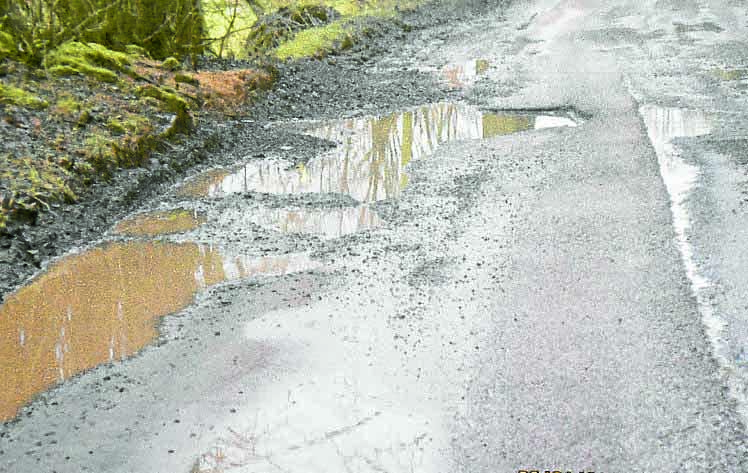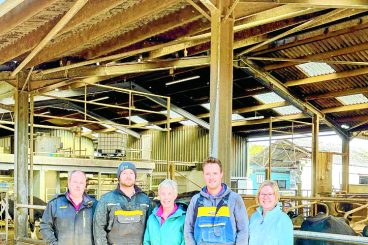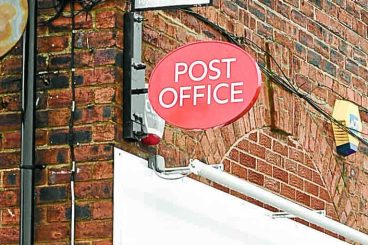And despite the strength of public feeling, they have denied being the worst area for potholes.
In a reply to Moffat Community Council, released last week, roads bosses cited under-investment, bad weather and being in the process of upgrades as reasons for pothole issues plaguing routes locally.
Answers were also given on the techniques used to fix potholes and money paid in out insurance claims.
Moffat Community Council had tried to get a representative from the department to attend their February meeting to no avail.
So, secretary Mick Barker subsequently raised a CCES – community council enquiry service – with them containing a list of questions.
He said: “We didn’t get anyone to come to our meeting and no one has names in the public domain for us to contact.
“So we gave a series of questions we wanted to know the answer to.
“I did receive back a document that was several pages long.”
In that reply, a council officer said: “Inclement weather has a huge bearing on the roads. This along with under investment over several years creates issues with road defects over the winter season.
“There is no evidence to suggest that Dumfries and Galloway have one of the worst pothole situations across the country.
“However, the road condition index suggests that Dumfries and Galloway is among the worst for road conditions in the country, this is not specifically related to potholes.
“Many of the issues raised are national issues facing the local road network.”
Pointing to better times ahead, the spokesperson said: “Dumfries and Galloway Council approved a nearly 40 per cent uplift in the service budget from April this year for a four-year period.
“This will enable us to undertake a greater volume of road repairs in all parts of the region.
“With the additional repair works starting this year, local communities will start to see improvements in their areas.
“We are in the process of a major upgrade to the technology systems that we use to track and monitor faults on the road network.
“We have over the last 12-months invested in a range of high productivity techniques to increase the efficiency of road repairs.
“On occasion the service will implement make safe or emergency repairs that do not have the same longevity as permanent repairs. “However, they reduce the immediate road safety risk until repairs can be sealed or permanent repairs can be scheduled.”
The community council also asked about the technology being used to fix the road defects.
The council spokesperson said: “The Pothole Pro offers great productivity in terms of cutting and planing out of damaged road surface for large patching works, but it requires quite a large team of operatives to keep pace with it.
“However, it has its limitations on many of the region’s narrower roads and still requires the manual element of backfilling the pothole.
“We have undertaken a short trial and intend to do further trials with it to see how it can fit with our wider service model.
“Other techniques exist for repairs and one in particular that we are investing heavily in is spray injection patching which offers very high levels of productivity.
“We are just finalising a large programme of spray injection patching over the coming months.
“We are also progressing procurement of supply chains that will be able to deliver a much broader range of road surfacing techniques in the future to enable us to deliver a greater volume of full-scale road surface improvements.
“The service regularly carries out trials on innovations available to the industry. However, currently traditional patching and spray injection have proved best value.”
Furthermore, in the last three years it was revealed the council’s insurer had handed out over £466,000 in compensation following claims.
At the time of the reply there were 442 claims currently open.























